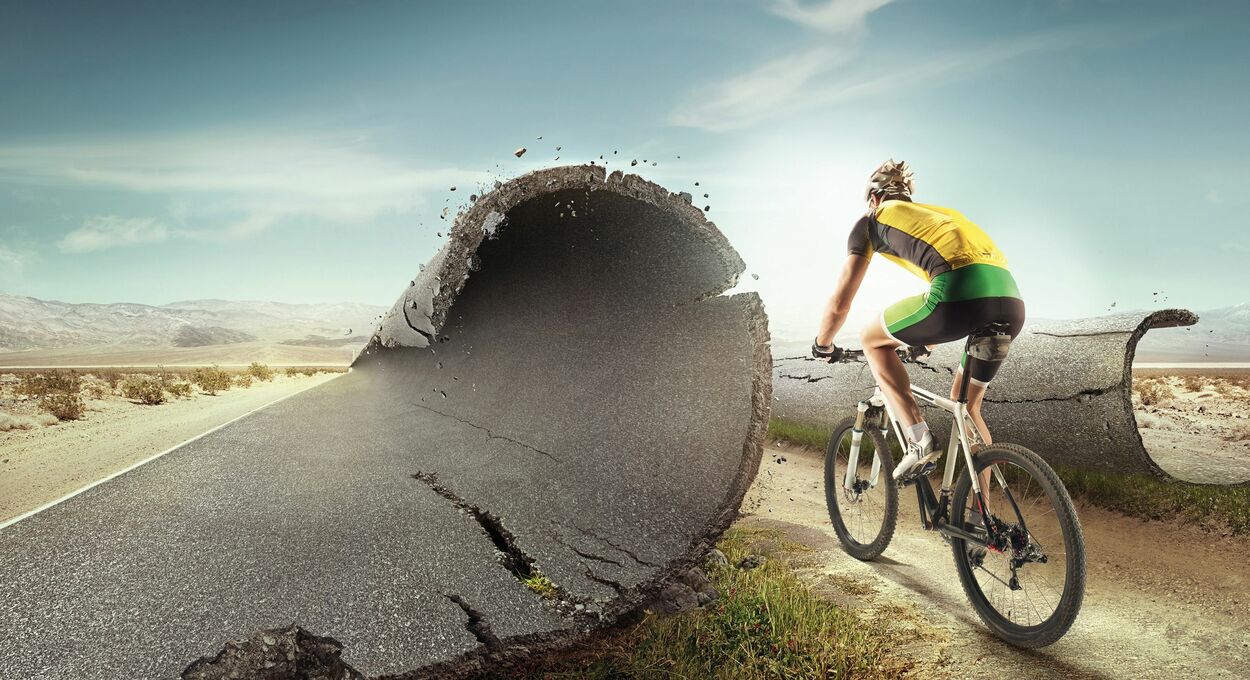As unbelievable as it sounds, the Corona crisis that has been holding court for over half a year now hasn’t been exclusively negative. Sure, the amount of uncertainty it has created for citizens, business leaders, parents, and employees, is incredibly high. And, of course, the sports industry is no exception.
We were never this certain of the fragile nature of our tried and trusted strategies for success. Never before was there this much of an opportunity to anticipate and adapt to ever changing circumstances. Let’s forge these uncertainties into strengths!
Take control in 4 possible scenarios for the future
Because sitting around, idly hoping for the crisis to blow over, is not an option, we’ve devised four possible future scenarios. These scenarios enable an in-depth analysis of how sports in Flanders could evolve in the future.
There are two crucial factors that will influences these scenarios: first of all, the level of control we can exert over the virus. Secondly, the impact this crisis has on the economy.
Each possible combination of these variables leads to another future scenario that brings with it a variety of risks and challenges. Let’s take a look at our possible scenarios.
1. The fear factor
A scenario where we cannot sufficiently control the virus, but an economic stability is attained.
The sports industry needs to reinvent itself to survive. A shift in focus will happen to local and online competitions, and to a more virtual experience of sports. E-sports and virtual experience options can see their share in the traditional sports market increase. Individual outdoor sports such as cycling and jogging are extremely popular in this scenario, possibly but not necessarily linked to endurance and a fortified immune system.

2. The end of the world
The worst-case scenario: the virus can’t be controlled and the economy is unable to recover from the impact. A full-blown depression.
The trends are similar to those in our Fear Factor scenario, but the financial wiggle room for innovation is exceedingly narrow. A lack of attention and investment attraction makes it nearly impossible for the sports industry to reinvigorate itself. Sponsors are cancelling contracts, there are no new live competitions, only re-runs of historical events remind the public of the years where sports were still a part of their life.
3. Building a new world
The economy is in a horrible state as in the last scenario, but there is a scientific light at the end of the tunnel. The vast knowledge of the virus has helped society gain control over the situation.
The financial impact on the sports industry is high. Competitions, clubs and events are trying to reboot with trying financial circumstances. People are looking to sports as an outlet, a connection, the foothold that is facilitated by good health.
4. Visions of tomorrow
We like to end on a high note, our most positively oriented scenario. The impact of the Coronavirus on the economy is mitigated through a continuously rising level of control of the pandemic.
A structural obeisance of the Corona health and safety measures ensures that competitions, events and clubs can start up and continue. The social aspect of sports is slowly but surely finding its way back to society. Technology is integrated at a high pace, sports and e-sports are growing towards each other, as part of a risk management strategy.
Now, we realize that some will be more inclined to tackle The End of the World, while others might be more interested in Visions of Tomorrow. To each their own. We can only advise to be as prepared as possible, for each of the above scenarios.

Start the discussion
Every sport has its specific characteristics, which means that each organization will have their own meaningful, and necessary, internal discussions. What, for example, is the impact of an empty stadium on a soccer team? How can a judo club reinvent itself in a world where contact sport is a no-go? Which digital innovations can have a positive effect on the practical aspects of organizing events and competitions? How can AI help create a base for well founded decisions?
Assemble your network
Creating a permanent risk-awareness within an organization sounds pretty reasonable. On paper. The reality is that practical objections and cluttered calendars can interfere with the mission. Make sure to clarify which role-specific expectations are to be met within the organization. Have a “future team” that works in tandem with the operational team to realize a future-proof innovation plan. Expand your horizons and confer with colleagues in your sporting federation or ecosystem. Preparation is key, and will give you an edge moving forwards. Or, as sports journalist Hans Vanderweghe likes to posit: “In sports as in people: those who were healthy, will recuperate sooner.”
These scenarios were made for the Zoom talk about sport and COVID-19 of Sport Vlaanderen.
